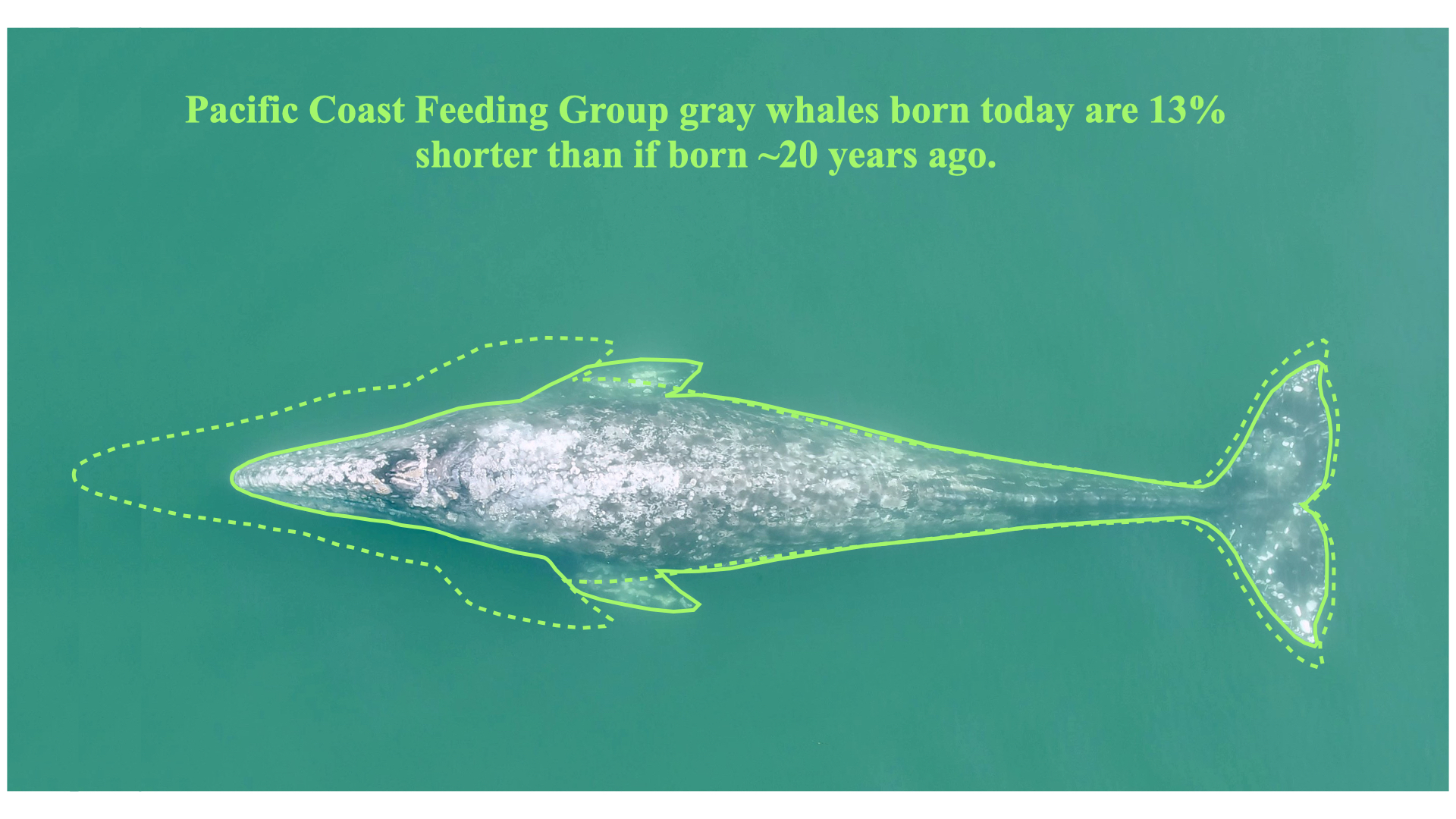Change is afoot along the Pacific Northwest coast. While hordes of crabs and spiders might be invading New York, something slightly different is happening to the whale population on the other side of the country. Scientists studying gray whales (Eschrichtius robustus) have found that they seem to be shrinking. Over in the North Atlantic, right whales have already been seen to be shrinking too.
The Eastern North Pacific (ENP) population of gray whales is thought to be around 14,500 individuals; a small subset of this group is called the Pacific Coast Feeding Group (PCFG) and consists of around 212 whales that forage in shallow coastal waters between California and Vancouver Island.
Using aerial images and data from previous years, the team set about comparing the body size of whales born in different years. The team measured 130 individual gray whales over the seven-year study period. They found that a whale born in 2020 was estimated to reach an average maximum length 1.65 meters (5.4 feet) shorter than any animal born in the 1980s. For a PCFG gray whale that grows to be 11.6-12.5 meters long when fully grown (38-41 feet), that is a loss of more than 13 percent of their total length. The results suggest this decline started around the year 2000.

A gray whale born in 2020 is expected to reach an adult body length that is 1.65 meters (5.4 feet) shorter than a gray whale born prior to 2000.
Image credit: Oregon State University
“This could be an early warning sign that the abundance of this population is starting to decline, or is not healthy,” said K.C. Bierlich, co-author on the study and an assistant professor at Oregon State University’s Marine Mammal Institute in Newport, in a statement.
The team thinks this decrease in body size will have consequences for the individuals in terms of behavior and ecology. Gray whales rely on energy reserves throughout the winter months – a smaller body size will limit the extent of these reserves and could impact their survival and reproduction.
“And whales are considered ecosystem sentinels, so if the whale population isn’t doing well, that might say a lot about the environment itself,” continued Bierlich.
The decline in body length was especially pronounced in the females, which used to be typically larger than the male whales, but in the study were found to be the same size or even smaller.
“With them being smaller, there are questions of how effectively these PCFG gray whales can store and allocate energy toward growing and maintaining their health. Importantly, are they able to put enough energy toward reproduction and keep the population growing?” Bierlich said.
The team plans to investigate further into what could be causing the decrease in whale size. There is some suggestion that ocean conditions have changed as a response to climate change, which could be contributing; other suggestions include a decrease in habitat quality due to human activities. Two proxies of habitat quality, the mean Pacific Decadal Oscillation index and the mean ratio between upwelling intensity and the number of relaxation events, were highlighted; these are thought to be changing with climate change, which could influence foraging conditions for the gray whales and thus their shortening length.
The foraging grounds also need further investigation, write the authors, and they raise questions around why the whales would continue to use these areas if this habitat is associated with a reduction in body length.
The study is published in Global Change Biology.
Source Link: Gray Whales In The Pacific Ocean Are Shrinking By As Much As 13 Percent